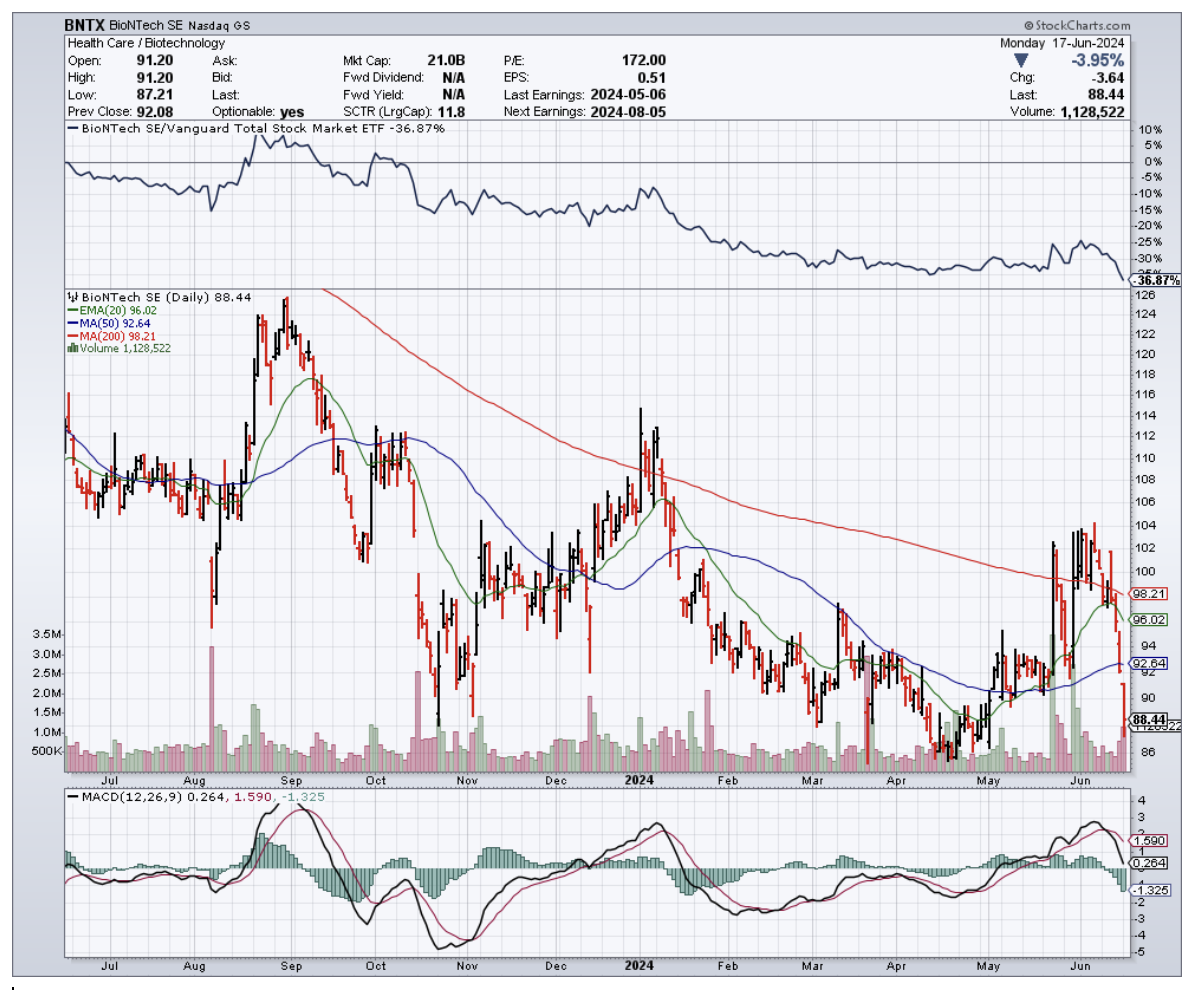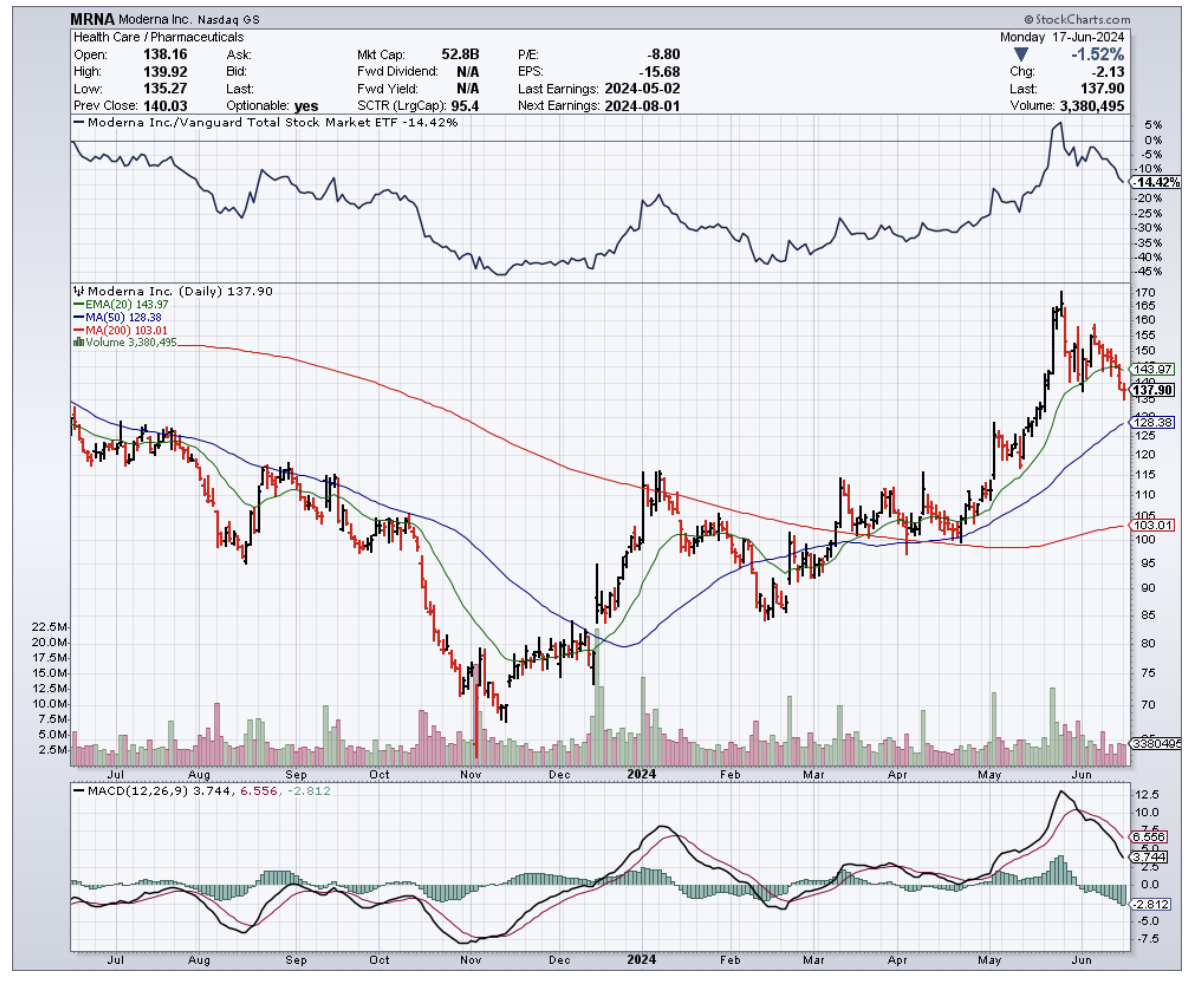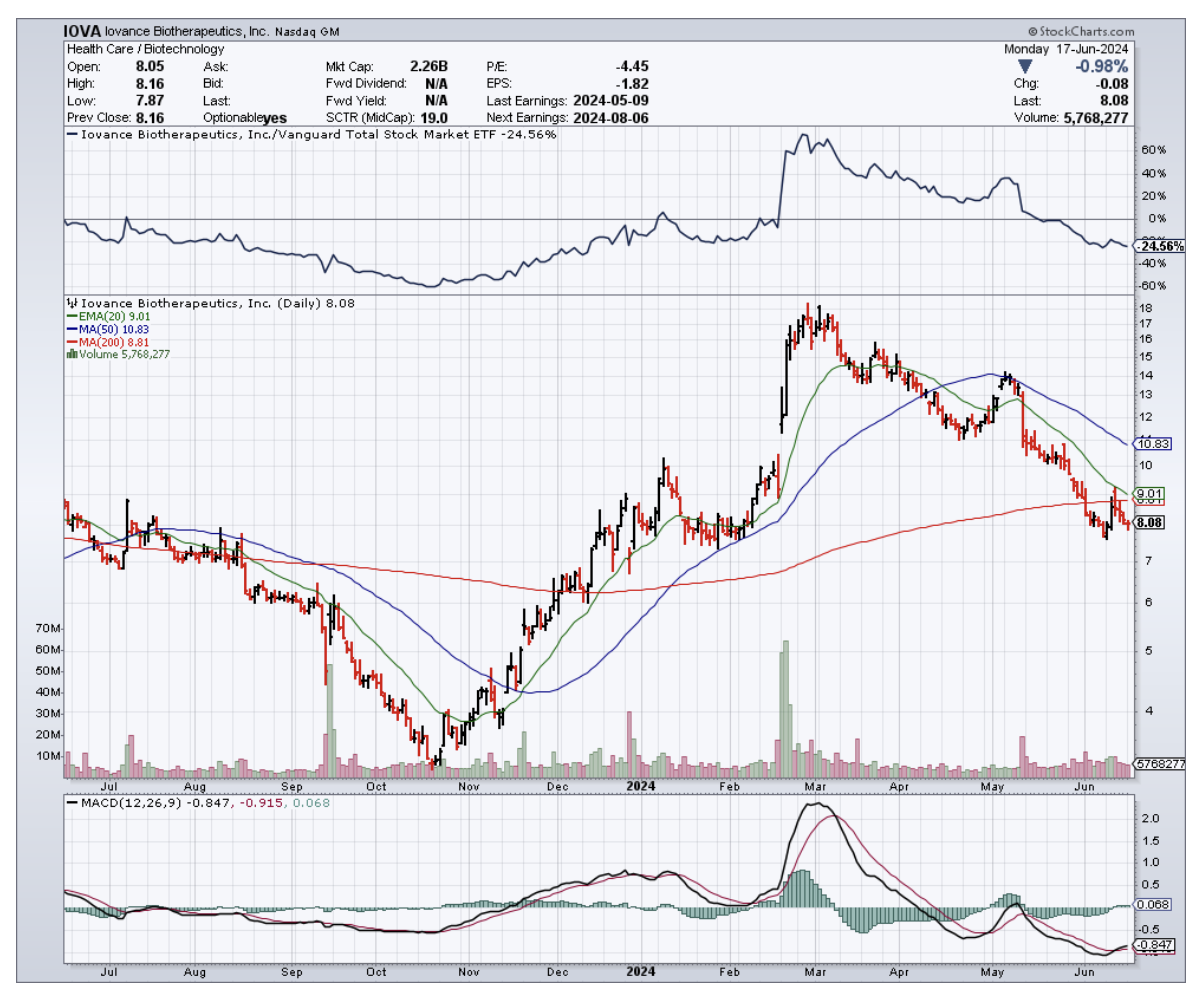Vax To The Future
Let's have a heart-to-heart, you and me – about cancer, jabbers, and snake oil. If you think vaccines have been around for a while, you're on the money, my friend.
Over centuries, they've done a bang-up job wrestling down deadly infectious diseases and picking our collective life expectancy off the floor.
But what if I told you there's a different kind of magic we're still waiting for in the world of vaccines?
God's truth, I kid you not, science has been hammering away at this for years: creating vaccines to kick cancer square in the posterior. Yet, like an ardent investor waiting for the grand payoff, we've seen more flops than a fish outta water.
You can count on your one hand the number of cancer vaccines approved by the FDA since that first green-lit in 1990.
Let's not stammer about the bush, it's three – Provenge by Dendreon Pharmaceuticals, Imlygic by Amgen (AMGN), and Tecentriq by Roche (RHHBY).
Meanwhile, our old reliables – chemo, radiation, and the surgeon's knife – have, like battle-weary soldiers, been holding the fort for decades. But even they face formidable foes: nasty side effects, a bill that'll make a Rockefeller blanch and a diminishing punch against advanced cancer.
And the stats tell a story, but it ain't a happy one. Barely 59% of cancer patients treated with standard chemo make it through the five-year mark.
Until now.
Looking back, it's clear we've been a few beans short of a chili in our understanding of how the immune system and tumors get along — or rather, don't.
Now we know these devious cancers have been hoodwinking us with a starter kit of escape tools, literally tricking the immune system into playing “hide and seek.”
That’s where the likes of BioNTech (BNTX), Moderna (MRNA), Genocea (GNCA), and Iovance (IOVA) come in. To date, there are over 350 clinical trials focused on this field.
And if these new kids on the block deliver, we'll be singing hallelujahs with 83% five-year survival odds instead of the grim 59% chemo gives us.
As for those already in late-stage battles, where chemo only offers a bleak 4% five-year survival, immunotherapy could boost that to 23%.
So, what's the game-changer? Immune-modulating cancer vaccines.
Unlike traditional treatments that attack cancer cells directly, these vaccines train your immune system to recognize and destroy cancer cells like a well-trained bouncer booting out unruly party crashers.
Contrasted to the old brute force methods like chemo, and trust me, I’ve had some friends go through that ordeal, these vaccines are more like a sniper - taking precise aim only at cancer cells.
Plus, side effects? Minimal, my friends. But the cherry on top? These vaccines could potentially be your long-term bodyguards against cancer.
Now, I'm sure you love crunching numbers as much as I do, so here's some food for thought - the global cancer vaccine market was worth a cool $4.06 billion in 2019 and is projected to triple to $12.85 billion by 2027.
I mean, come on, that's a compound annual growth rate of 17.4%. It’s like watching your favorite sports team go on a championship run, season after season.
And the broader cancer immunotherapy market, sitting pretty at $75 billion in 2022, is on track to hit $120 billion by 2030, boasting a 14% CAGR.
These are not just empty promises either. We're seeing real progress - BioNTech and Moderna are developing personalized cancer vaccines that target unique tumor antigens.
Then there’s Genocea and Iovance, busy rolling out “off-the-shelf” cancer vaccines like fresh donuts off a conveyor belt.
This is a critical development, as around 70% of cancer patients develop resistance to chemotherapy.
These new immunotherapy contenders, with an overall survival rate of 50% compared to just 22% for those resistant to chemo, with every single patient potentially scoring against the dreaded C, and not fretting about chemoresistance. Talk about a fighting chance.
Overall, I think the cancer vaccine field is the Wild West of biotech – exciting, unpredictable, and potentially very rewarding. With companies pouring money into R&D, fueled by rising cancer rates and expedited FDA approvals, the race is on.
Immune-modulating cancer vaccines might just be the sheriff that this Wild West of cancer treatment needs, flipping the script on what used to be a death sentence into something we can manage.
Now, I'm not saying you should throw all your eggs in one basket, but keep a close eye on those mavericks like BioNTech, Moderna, Genocea, and Iovance. They could be the dark horses in this race.
Add them to your watchlist, and when the market hiccups and those share prices dip, that could be your chance to get a piece of the action.




